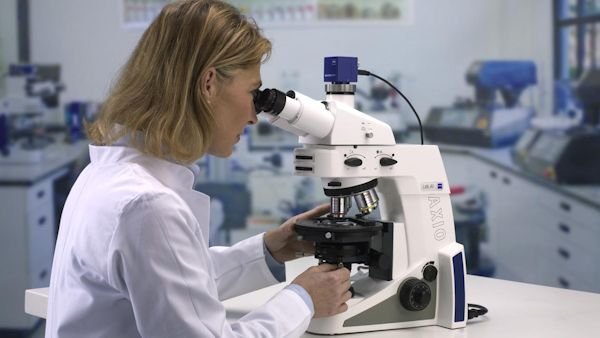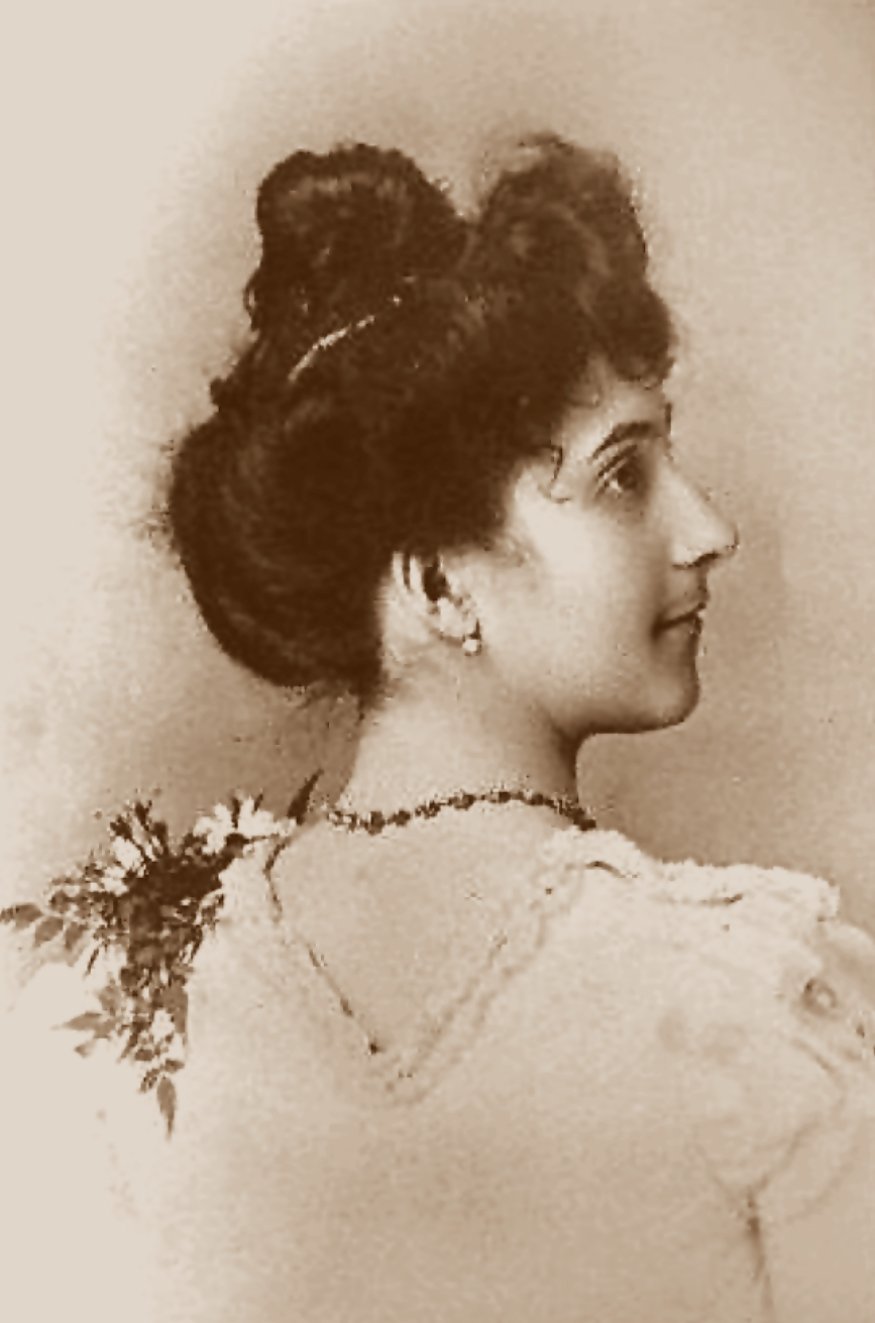"I'm not after living to 1,000. I'm after letting people avoid death as long as they want to." - Aubrey de Grey

Scientists have extended lifespans of organisms many times over. Photo courtesy of Wikipedia
Background
Odds are, if you live in the developed world, you will live into your 70s or 80s. Increasing numbers of us are even making it into our 90s. According to the U.S. Bureau of the Census, in 2010 there were 53,364 people over the age of 100 or 0.0173% of the population; they are one of the fastest-growing demographic groups. Nonetheless, there are only a handful of people that live to be super-centenarians (more than 110 years)

Jeanne Louise Calment is the recorded oldest person. She is documented to have lived 122 years, 164 days. Photo courtesy of Wikipedia.
Truth be told, extreme longevity is not uncommon in nature. Bristlecone pine is a good example. Some of these North American trees live 5000 years. Pando lives to an estimated 80,000 years, placing it among the oldest known living organisms. Indeed there are animals that do not age. They may die of disease, predation or environmental toxins, but they do not seem to age or die of old age.

Turritopsis dohrnii is a species of tiny biologically immortal jellyfish found in the Mediterranean Sea and the waters surrounding Japan. Photo courtesy of Wikipedia.
However, for mankind, ageing and death has been a vexing problem over the centuries. One of the earliest works of literature, the 22nd century B.C.E. Epic of Gilgamesh focuses on a hero’s quest for immortality. Around the 13th century, philosopher Roger Bacon wrote 'The Cure of Old Age and the Preservation of Youth' and argued that ageing is essentially a trouble that can be corrected. In the late 1700s, Scotsman James Graham claimed Londoners could live 150 years by visiting his clinic where he persuaded them to rub themselves with balsam and wash their genitals in champagne. All throughout history, there have been many like Ponce de Leon who in the popular culture is said to have searched for the "fountain of youth".
.jpg)
Old People in Naples, old postcard (Costumi Napolitani). Graphic courtesy of Wikipedia.
For me, radically extending human lifespan is a no-brainer. Unfortunately, aging and death is so horrible that most of humanity have insulated their psyches from the gruesome facts to the point of constructing elaborate myths, delusions and psychological defences to deal with this grim reality: you will grow old, get sick and die.

St.Peter und Paul in Söll - Deckenfresko Triumpf der Kirche 3 Paulus. Graphic courtesy of Wikipedia.
Regardless of how cleverly we may delude ourselves to avoid the thought of it, by not attacking the problem of ageing head-on we only condemn ourselves more certainly to gradual decrepitude and eventual death. Do we want to live long and healthy lives to enjoy the infinite number of enjoyable experiences that life has to offer? If so, we must abandon superstitious thinking, stop making excuses, quit burying our heads in the sand and once and for all put an end to ageing!
What can we do about ageing and death?
The 21st century is a time of epic advances in science and technology as evidenced by the rate of growth in scientific publication[1] amidst myriad amazing technological accomplishments: functioning artificial hearts, 3D printing of living tissue and machine learning algorithms creating scientific hypotheses; a common smartphone can be cheaply converted into a microscope to identify pathogens[2]; computers can do forensics with accuracy superior to that of a trained human pathologist[3]. The list goes on and on and the time is right for us to take on the biggest scientific/technological challenge of all - the scientific conquest of ageing and death.
The charismatic leader of an emerging rejuvenation industry is one Dr. Aubrey D.N.J. de Grey, a British biogerontologist who is spearheading a global effort to end ageing ASAP. His credentials are too numerous to list here, but two of his significant efforts are editing Rejuvenation Research and creating the SENS Research Foundation.
YouTube titled "Seeking immortality: Aubrey de Grey at TEDxSalford".
The crux of Dr. de Grey’s human rejuvenation program is SENS (Strategies for Engineered Negligible Senescence) which outlines his 7 point plan to end ageing. The core of the plan is de Grey's "7 deadly things":
- cell loss or atrophy (without replacement)
- oncogenic nuclear mutations and epimutations
- cell senescence (Death-resistant cells)
- mitochondrial mutations
- intracellular junk or junk inside cells (lysosomal aggregates)
- extracellular junk or junk outside cells (extracellular aggregates)
- random extracellular cross-linking
On August 16-17 of 2016, the 2016 Rejuvenation Biotechnology Conference organized by the SENS Research Foundation convened at The Buck Institute for Research on Aging, Novato, California. Many hours of high quality recordings of the proceedings can be found here. These videos provide an excellent overview of the current state of the rejuvenation biotechnology industry with regard to specific scientific advances in addition to political and financial concerns.
Furthermore, the gargantuan Google joined the anti-aging industry in late 2013 with a $1.5 billion war chest and it’s “moonshot” company called Calico. Calico is still in stealth, but they have been recruiting top scientific minds and are already partnering with major biotechnology organizations. They have joined forces with the Buck Institute, a leader in ageing research. In addition, drug maker AbbVie and Calico recently formed an alliance to research and bring to market novel drugs and treatments for everything from cancer to Alzheimer’s disease. Furthermore, J. Craig Venter, the famous scientist credited with solving the human genome puzzle and whose organization created a new living organism, has also joined the quest with his new company named Human Longevity, Inc.
Alas, despite all the knowledge, wealth and industrial-might that civilization could focus on ageing, the greatest obstacle to achieving a life of 150 healthy years or more is still the attitude of the public.
Two noted experts, Drs. Gavrilov and Gavrilova, state in their book, The Biology of Life Span: A Quantitative Approach, that according to their research there is no limit to how long we can live[4]. But, now consider this: when asked whether they would want to have new medical treatments that could slow the ageing process and allow people to live decades longer, to at least 120 years old, a survey by the Pew Research Center finds that most Americans (56%) say “no” — they, personally, would not want treatments to enable dramatically longer lives. Complacency with the horror of aging and death is the prevailing mentality.
Perpetually, 100,000 people die of ageing every day while a quarter of a trillion dollar per year “anti-aging” industry pushes a plethora of supplements, wrinkle creams, Botox treatments, bogus scams and such. What if that kind of money could be spent on real cures for the diseases of ageing instead???
There is no doubt that real rejuvenation therapies and healthy lifespans in the 100s of years will become a reality at some point in the future. It is just a matter of time. The question to ask of yourself is: do you want it soon or 80 years from now?
This blog is an updated version of an article about the rejuvenation biotechnology industry I posted last year on Zapchain.com. It may be worth noting that Zapchain was similar to Steemit because posts were rewarded in cryptocurrency (Bitcoin); what was different was that rewarding authors was voluntary (tipping) with additional residual revenues paid to authors of original articles based on overall traffic generated. Moreover, I have been researching and blogging about ageing since 1999. Currently, I own and moderate the Biology of Aging Community on Google+.
Footnotes
[1]http://www.ncbi.nlm.nih.gov/pmc/articles/PMC2909426/
[2]http://physicsworld.com/cws/article/news/2014/apr/30/new-lens-could-turn-your-phone-into-a-microscope
[3]http://www.ascopost.com/News/43849
[4]http://longevity-science.org/ExpGeront-The_Biology_of_Lifespan.pdf

